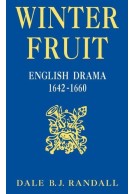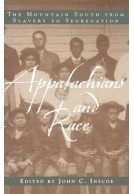Artisans in the North Carolina Backcountry (Paperback)
Imprint: University Press of Kentucky
Pages: 224
Illustrations: photos
ISBN: 9780813156095
Published: 15th July 2014
Script Academic & Professional
Pages: 224
Illustrations: photos
ISBN: 9780813156095
Published: 15th July 2014
Script Academic & Professional
This book will be reprinted and your order will be released in due course.
You'll be £27.00 closer to your next £10.00 credit when you purchase Artisans in the North Carolina Backcountry. What's this?
+£4.99 UK Delivery or free UK delivery if order is over £40
(click here for international delivery rates)
Order within the next 1 hour, 3 minutes to get your order processed the next working day!
Need a currency converter? Check XE.com for live rates
(click here for international delivery rates)
Order within the next 1 hour, 3 minutes to get your order processed the next working day!
Need a currency converter? Check XE.com for live rates
During the quarter of a century before the thirteen colonies became a nation, the northwest quadrant of North Carolina had just begun to attract permanent settlers. This seemingly primitive area may not appear to be a likely source for attractive pottery and ornate silverware and furniture, much less for an audience to appreciate these refinements. Yet such crafts were not confined to urban centers, and artisans, like other colonists, were striving to create better lives for themselves as well as to practice their trades. As Johanna Miller Lewis shows in this pivotal study of colonial history and material culture, the growing population of Rowan County required not only blacksmiths, saddlers, and tanners but also a great variety of skilled craftsmen to help raise the standard of living.
Rowan County's rapid expansion was in part the result of the planned settlements of the Moravian Church. Because the Moravians maintained careful records, historians have previously credited church artisans with greater skill and more economic awareness than non-church craftsmen. Through meticulous attention to court and private records, deeds, wills, and other sources, Lewis reveals the Moravian failure to keep up with the pace of development occurring elsewhere in the county.
Challenging the traditional belief that southern backcountry life was primitive, Lewis shows that many artisans held public office and wielded power in the public sphere. She also examines women weavers and spinsters as an integral part of the population. All artisans -- Moravian and non-Moravian, male and female -- helped the local market economy expand to include coastal and trans-Atlantic trade.
Lewis's book contributes meaningfully to the debate over self-sufficiency and capitalism in rural America.
Other titles in University Press of Kentucky...















